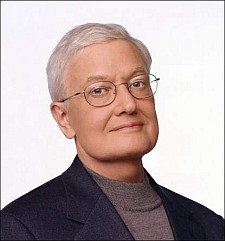
Two recent examples. On “The Bourne Ultimatum,” someone writes, “I thought this movie deserved much better [than] a B+.” (Considering the scale only goes up two more notches, to A- and A, I’m not sure that “much” better than B+ was really an option. That’s like saying you wish something cost “much” less than a nickel.) And on “Lars and the Real Girl,” a reader says, “Now, I’ll go back and read your [review], and may learn why you thought the film deserved only an A-.” (“Only” an A-? You people are tough!)
In both of those cases, the reviews are entirely positive. There’s nothing in the text to indicate that I thought the movie was lacking in any way. So why not a perfect score?
As is often the case, Roger Ebert has expressed the answer to this question much better than I would have. In a recent “Answer Man” column, he received this question:
I often find some of my very favorite films are ones you give 3 1/2 star ratings. I’ve never read a review where you explain what costs these movies the last half star…. How do you decide on those?
And Ebert explains it thus:
I wish that I didn’t give star ratings at all and every review had to speak for itself. But 3 1/2 is a very good rating, meaning all a movie lacked was an ineffable tingle at the base of my spine.
Exactly. An A- or B+ movie, if there’s nothing specifically wrong with it, simply lacks a certain something — something you can’t necessarily put into words, but something nonetheless.
I used to be much more liberal with my A’s. If you look in the archives, you’ll find I gave them out more frequently when I first started reviewing (mid-1999), and less often starting in about 2004. It used to be that if I couldn’t think of anything particularly wrong with a film, I gave it an A. Now my attitude is different. It’s not enough that a film doesn’t have anything noticeably wrong with it. It needs to have something strongly right about it, too.




